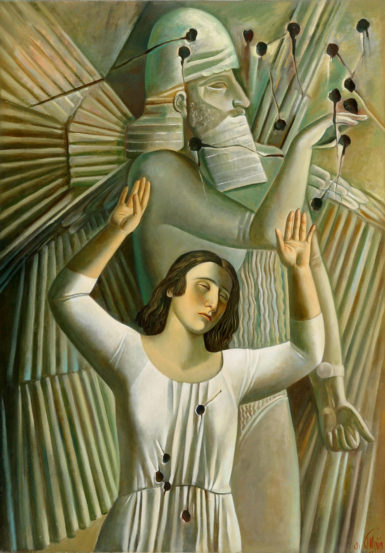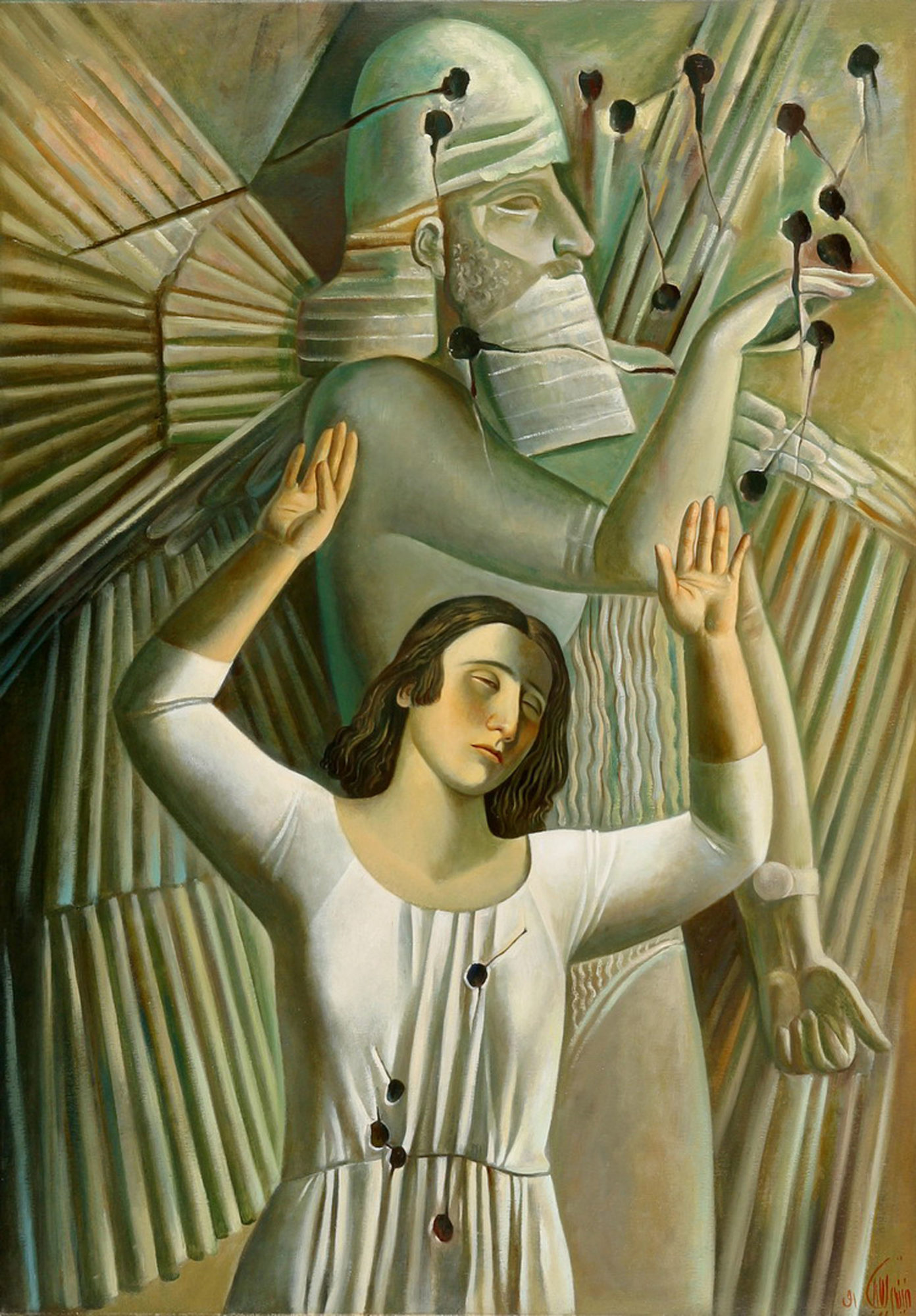[ad_1]

Afifa Aleiby, Gulf War, 1991. Aleiby was one of the artists who could not travel to PS1.
COURTESY THE ARTIST
A major survey on view now at MoMA PS1 in New York takes as its subject wars in the Gulf region between 1991 and 2011, and much of its focus is the way Westerners watched the horrors of conflict in Iraq unfold from afar, via the internet, television, and news publications. Now, after being denied visas, artists of Iraqi descent are being forced to remotely look on as Americans celebrate the exhibition while they remain unable to travel from their home countries.
Several artists in the show have been unable to come to America to view the 300-work exhibition, titled “Theater of Operations: The Gulf Wars 1991–2011.” Among those artists are Afifa Aleiby, who was born in Iraq and is now based in the Netherlands, and Ali Eyal, who splits his time between Beirut and Baghdad. According to Artnet News, other artists among the 80 represented in the exhibition tried to get visas and were also unable to attend.
On Friday, PEN America, a prominent activist arts organization that has regularly spoken out against the Trump administration’s travel ban, which limits who is allowed to enter the United States, released a statement decrying the denial of visas to artists in the exhibition.
Julie Trébault, the director of Artists at Risk Connection, a PEN-overseen organization devoted to artists, said in the statement, “Today, it is unacceptable that artists being celebrated for their work cannot travel to view it in person as a mere result of the U.S. government’s targeted discrimination against those from the Middle East. The denials send a disconcerting message to cultural professionals everywhere: The contributions of international creative artists have no place in the American cultural fabric.”
“There is not just one story that encapsulates the challenges faced by artists in ‘Theater of Operations’ who wanted to travel to the US for the opening, especially the 36 artists from Iraq and Kuwait, many of whom currently live in diaspora across the Middle East, Europe, and the Americas,” Ruba Katrib, a curator of the show, said in a statement sent to ARTnews. “Each of the artists has their own citizenship and residency situation, and as a result they face a range of obstacles that make travel to the US difficult, especially under current immigration policy. Several artists also shared with us they didn’t want to come to the US for personal and political reasons. In some cases, artwork is able to travel more easily than the artists themselves.”
The denial of visas to some of the artists in the exhibition is the second controversy to hit “Theater of Operations,” which opened to the public earlier this month and runs through March 1. Amid allegations that the Museum of Modern Art and one of its trustees were financially tied to private prisons, Phil Collins removed a video from the PS1 show. The gallery where the work was to go on view remains empty and dark, and a wall label notes the removal.
[ad_2]
Source link

